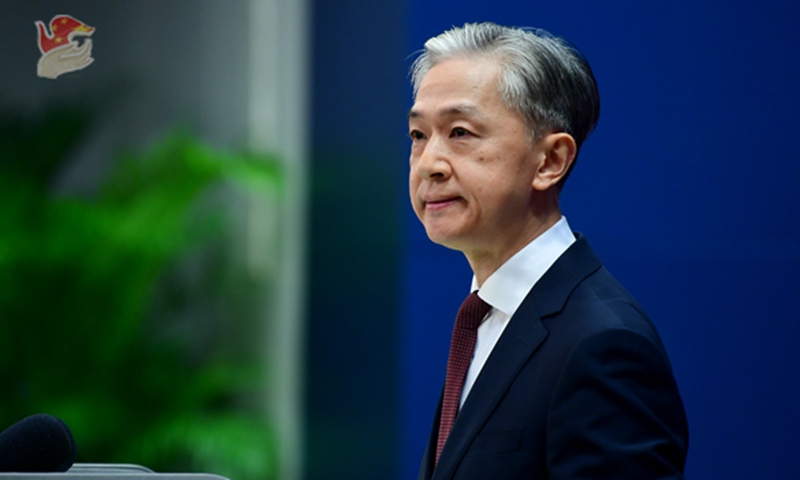Japan, which holds the G7 presidency this year, is urged not to be an accomplice and accessory to economic coercion, and G7 countries should demand that the US stop splitting the world into two markets, which is the primary threat to the global economy, Wang Wenbin, a spokesperson of China’s Foreign Ministry, told a press conference on Monday.
Wang made the remarks in response to reports from foreign media outlets saying that the G7 summit in the Japanese city of Hiroshima may issue a separate statement on economic security, which would emphasize countering “economic coercion,” maintaining supply chain resilience and fair competition, and moving away from dependence on China in areas such as key minerals and semiconductors.
Japan should have the deepest understanding of “economic coercion,” Wang said, as Japan was a victim of the Plaza Accord of 1985, under which the US forced the appreciation of the yen and the depreciation of the dollar.
“If the G7 countries are truly concerned about economic security, they should demand that the US immediately stop suppressing and containing other countries in the name of national security, stop indiscriminately applying unilateral bullying acts, stop coercing allies to engage in exclusive small circles, and stop disrupting the security and stability of the global industry and supply chains,” Wang noted.
Wang said that the US has coerced the countries concerned to engage in economic decoupling and a science and technology embargo against China, and it has unreasonably suppressed Chinese enterprises, which is by no means fair competition, but a serious violation of the principles of the market economy and WTO rules.
These countries should demand that the US refrain from addressing domestic debt defaults by continually raising the debt ceiling, and correct its aggressive monetary policy adjustments, in order to avoid transferring domestic risks to the world, according to the spokesperson.
“They should immediately identify and severely punish the perpetrators of the explosions of the Nord Stream gas pipelines and maintain the security of critical transnational infrastructure,” he added.
Wang said that these countries, such as the US and Japan, as members of “a club of rich countries,” should not only act on the interests of a few countries such as the G7 to the detriment of the vast majority of the international community, but should respond to the trend of openness and inclusiveness, and think more about how to do some real good for the peace and stability as well as development of the world.
(Global Times)




